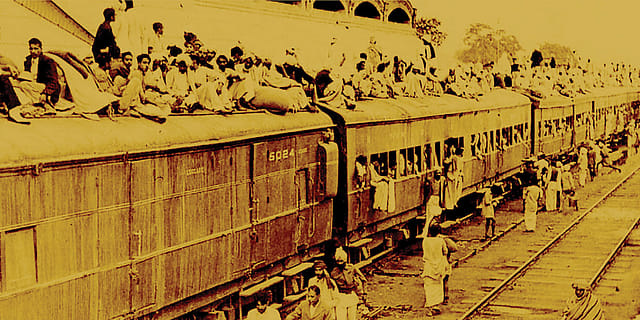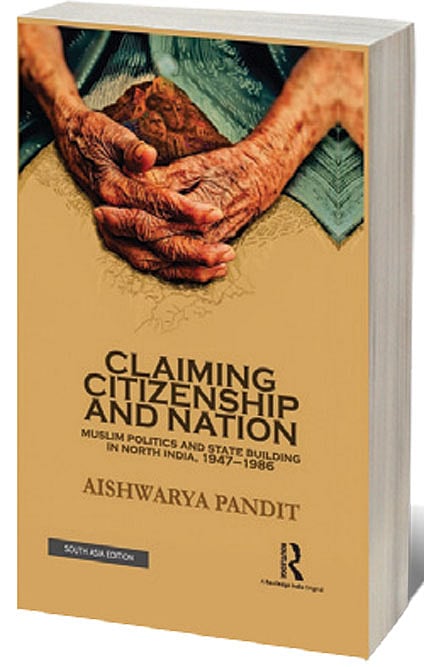The Shadow of Partition

AISHWARYA PANDIT’S new book is a brave and scholarly attempt to unmask the impact of Partition on contemporary Indian politics in the first 40 years of India’s freedom. In the process, the author, a Cambridge alumnus, explores with a great degree of success various facets of the once-powerful Congress party, with a special focus on north India, especially Uttar Pradesh (UP). She also debunks various myths camouflaged as academic texts about India’s Grand Old Party, Hindutva politics and the evolution of the region’s Muslim politics.
Claiming Citizenship and Nation stands out as a serious academic study thanks to its exemplary documentation and sourcing. It also challenges titans in the field of political science research, especially on Muslim society and politics in UP after Independence. Pandit’s book is as provocative as it is stimulating thanks to her new findings, drawn from various private papers, including those of Humayun Kabir, Purushottam Das Tandon and Charan Singh, to name a few. The breadth of research is exemplary, and the bibliography alone runs into 19 pages. Pandit travelled and met several tall leaders of the Muslim community, especially in Aligarh and Lucknow. The book starts with a 2013 interview of the ageing Riazur Rehman Sherwani at his Aligarh mansion, who told the author that in his hometown most Muslims migrated to Pakistan not in 1947, but in 1950, and not of their own volition, but because “they were forced to do so”.
That sets the tone and helps the writer shine light on the impact of Congress politics in UP and its provincial agendas, which were the antithesis of the dominant Nehruvian socialism of the time. If anyone thought that anti-Muslim bias was an invention of the Jan Sangh or the Bharatiya Janata Party (BJP), they are way off the mark, Pandit’s book reveals. It states that even Chaudhary Charan Singh, then a prominent Congress leader in the state, reportedly tried to highlight the sentiments of Hindu refugees from Pakistan by threatening to harass Muslims in India—to take revenge on what Pakistan was doing to Hindus. As early as 1951, such a remark attributed to Singh was reported in the Urdu press. The book examines the roots of the fear and anger among Hindus at Nehru’s Congress agreeing for Partition and the resultant aggression of leaders within.
Openomics 2026: Continuity and Conviction
06 Feb 2026 - Vol 04 | Issue 57
The performance state at its peak
Armed with such nuanced views on the growth of Hindu nationalism post Partition from within the ranks of the UP Congress and the Muslim alienation that followed, Pandit counters previous academic studies by a few well-known names, such as the late Mushirul Hasan and his commentaries on the same themes. “None of them withstand careful reassessment in the light of new sources,” she writes about Hasan’s books, one of which, according to her, paints a “rose-tinted picture of secularism and secularisation in the Nehruvian era”. Pandit’s position is that UP witnessed a powerful process of a “Hindu counter-mobilisation, as politicised Hindu nationalists reorganised themselves in the face of perceived threats to Hindus posed by the Nehruvian state.” The author also dwells at length on the underrepresentation and persecution of Muslims in the state under Congress.
The broader themes that the author covers in this must-read work include the rise and fall of Congress in UP; the trajectory of Muslims politics in the region, including internal divisions; the influence of pro-Hindi agitation in the political sphere; how property ownership changed for the Muslims in the state and the expropriation they had to face; and the citizenship issues for those Muslims who had migrated to Pakistan in various phases and returned to India. Some of them were arrested on charges of spying. Congress in UP at its prime comes under review in this book for treating Muslims as unreliable and as enemies within. What comes to the fore here is the deeper-than-expected effect of Partition on Indian politics and how it endures.

